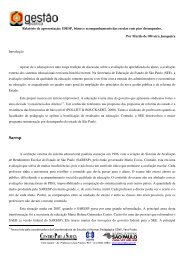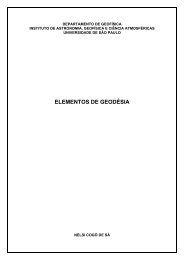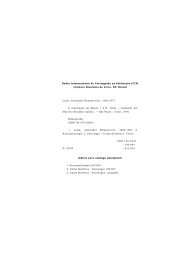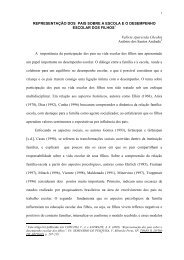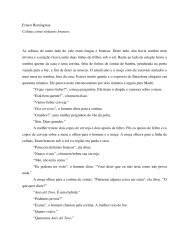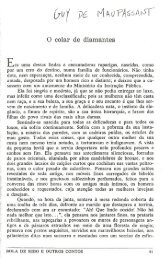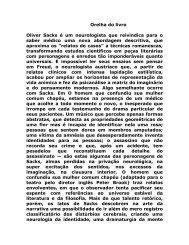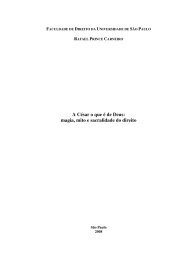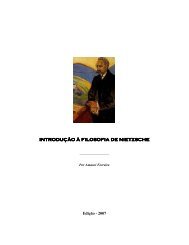A HISTORY OF MODERN IRAN - Stoa
A HISTORY OF MODERN IRAN - Stoa
A HISTORY OF MODERN IRAN - Stoa
Create successful ePaper yourself
Turn your PDF publications into a flip-book with our unique Google optimized e-Paper software.
60 A History of Modern Iran<br />
The Germans were also active. Wilhelm Wassmus, their “Lawrence of<br />
Arabia,” instigated uprisings among Qashqa’is, Khamsehs, Boir Ahmadis,<br />
Sanjabi Kurds, and, most serious of all, Arabs who in 1915 were able to<br />
cut the main oil pipeline. The Germans also persuaded a number of<br />
Swedish officers in the gendarmerie to desert. One historian writes: “The<br />
Swedish-officered gendarmerie, organized in 1911, had been as close as<br />
Britain could hope to come to a force in the south to maintain order; but<br />
that particular institution proved to be an unmitigated disaster during the<br />
war when most of the force defected to the Germans, refusing even to<br />
obey instructions from the Persian Government.” 77 The British attributed<br />
German popularity to the “aggressive,” “uncouth,” and “unscrupulous”<br />
behavior of the Russians. 78<br />
These wartime disruptions coincided with bad harvests, cholera and<br />
typhus epidemics, and, most deadly of all, the 1919 influenza pandemic.<br />
Altogether between 1917 and 1921 as many as two million Iranians –<br />
including one quarter of the rural population – perished from war, disease,<br />
and starvation. 79 One British eyewitness wrote that by 1919 hungry tribesmen<br />
were taking to rural banditry while starving peasants were rumored to<br />
be resorting to cannibalism. 80<br />
Peace did not bring an end to these difficulties. Curzon, now Britain’s<br />
foreign minister, saw the defeat of Germany and Russia as providing Britain<br />
with the perfect opportunity to take over the whole of Iran. As viceroy of<br />
India he had described Iran as vital for the security of the Raj, and had<br />
denounced in no uncertain terms the 1907 convention for conceding too<br />
much to Russia. He now drafted his Anglo-Persian Agreement to incorporate<br />
the whole country into the British Empire. Harold Nicholson, who<br />
served in the British legation in Tehran before turning to literature, wrote in<br />
his biography of Curzon that his protagonist aspired to create “a chain of<br />
vassal states from the Mediterranean to India.” 81 “Curzon’s imperialism,” he<br />
added, “was founded on the belief that God had personally selected the<br />
British upper class as an instrument of the Divine Will.” One London<br />
newspaper mocked that Curzon acted as if he had “discovered” the country<br />
and consequently owned it. 82 According to the Anglo-Persian Agreement,<br />
Britain obtained the sole right to provide Iran with loans, arms, advisors,<br />
military instructors, customs administrators, and even teachers. Frenchmen<br />
were to be barred from the Dar al-Fanon on the grounds that law and<br />
politics often seeped into international relations. In return, Britain was to<br />
provide Iran with a loan of £2 million. It was also to have the monopoly<br />
right to help the country build railways, combat famine, find entry into the<br />
League of Nations, and seek indemnity for damages suffered in World War I.



